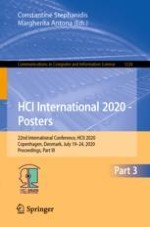2020 | OriginalPaper | Chapter
Human Error in Information Security: Exploring the Role of Interruptions and Multitasking in Action Slips
Authors : Craig Williams, Helen M. Hodgetts, Candice Morey, Bill Macken, Dylan M. Jones, Qiyuan Zhang, Phillip L. Morgan
Published in: HCI International 2020 - Posters
Publisher: Springer International Publishing
Activate our intelligent search to find suitable subject content or patents.
Select sections of text to find matching patents with Artificial Intelligence. powered by
Select sections of text to find additional relevant content using AI-assisted search. powered by
